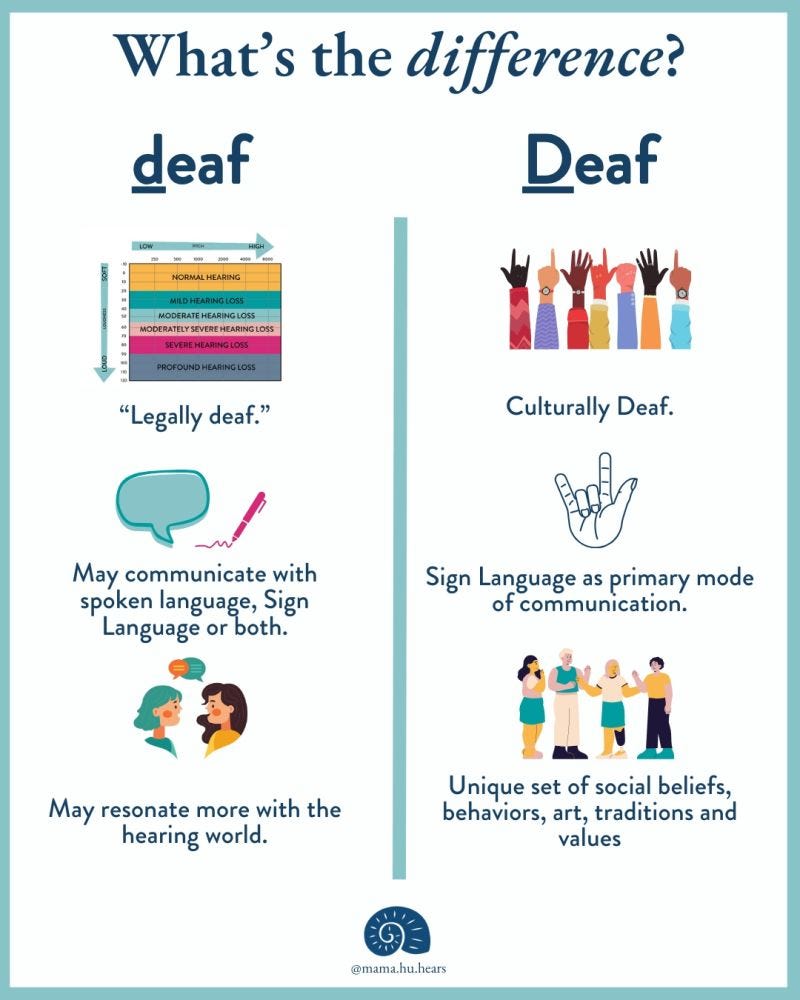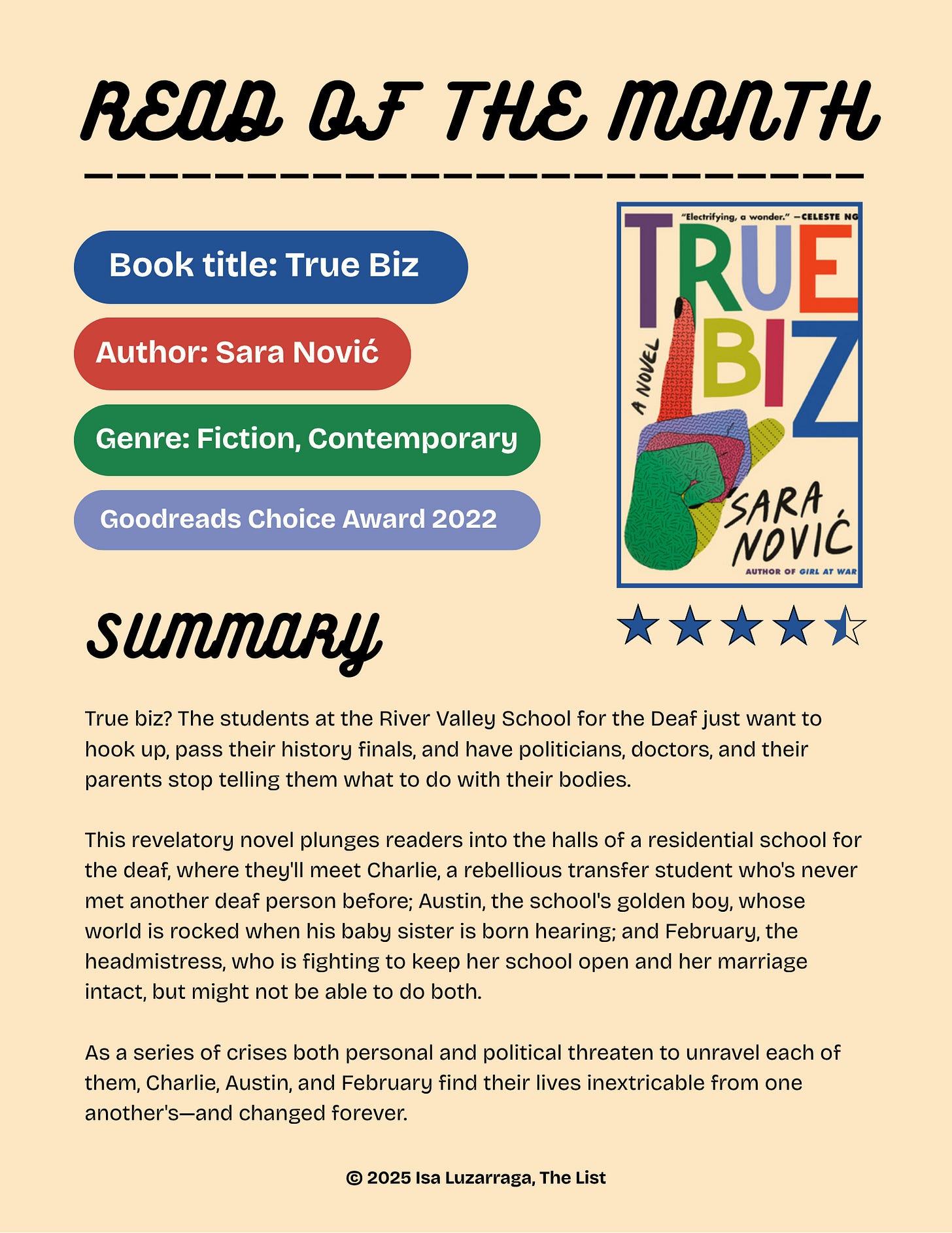Read of the Month: "True Biz" by Sara Nović
This coming-of-age novel follows members of a Deaf school in Ohio, effectively exploring the complexities of Deaf culture and the necessity of resistance.
Welcome to The List’s latest series Read of the Month where Isa selects one book she’s read to intensely analyze and gush over.
Before I read True Biz, the pieces of media I had engaged with that portrayed deaf people or Deaf culture were limited to the following: the ABC Family show Switched at Birth, Children of a Lesser God (shoutout to Academy Award Winner Marlee Matlin) and Nyle DiMarco’s cycle of America’s Next Top Model. Needless to say, I learned a lot while reading True Biz.
The novel is primarily divvied up into three perspectives: Charlie, a Deaf teenager with a cochlear implant who is sent to River Valley School for the Deaf following behavioral and academic issues at her local hearing school; Austin, also a Deaf teenager who is the golden boy of River Valley, and whose family is positioned as a local bastion of Deafness; and February, River Valley’s headmistress and a CODA (child of a deaf adult).
Nović’s choice to let three extremely different members of the Deaf community carry the narrative is fascinating and helps readers less familiar with the facets of Deafness — like myself — understand the nuances of language. For example, Charlie was implanted with a cochlear device when she was an infant. Cochlear implants are frequently advertised as a “cure” for deafness, though as indicated by Charlie’s ongoing struggle with her device, are not foolproof and can sometimes cause more harm than benefit.
When she was younger, Charlie’s audiologists advised her parents against teaching her sign language when she was implanted, claiming that her learning American Sign Language would limit the efficacy of the implant. Nevertheless, Charlie struggled in mainstream public school, hence her transfer to River Valley.
Thus, Charlie arrives not knowing how to sign, concerning February who has witnessed firsthand how parents’ indifference towards their deaf children halts their acclimation.
As February reflects, “Sign language had been so thoroughly stigmatized that in trying to avoid it, parents had unknowingly opted for a modern version of institutionalization, locking their children away in their own minds.”
To help Charlie adjust to River Valley, February assigns Austin as her mentor. He and Charlie develop a friendship and later a romance as they confide in each other about their disparate yet similar familial struggles.
The true conflict arises when the head of the district tells February they are shutting River Valley down due to budget cuts. As the news circulates throughout the school, Austin, Charlie and Austin’s roommate Eliot decide to stage an act of protest. Charlie is inspired by the Deaf President Now! movement at Gallaudet University, which she learns about in February’s Deaf history class. Charlie eventually enlists the help of her anarchist, former high school hookup.
Without giving away the ending, True Biz is one of the most eloquent, heartfelt portrayals of teenage angst I’ve ever read. Nović illustrates this succinctly when the teenagers are planning their protest, writing, “fewer things were more motivating than a fear of one's own extinction.”
The book’s title is a reference to a phrase used by ASL speakers which closely translates to “real-talk.” Whenever February believes her students are committing indiscretions, she asks them “True biz?” essentially guaranteeing them a lesser punishment if they are fully transparent with her.
Nearly every detail of True Biz appears thought-out. Between chapters, Nović includes snippets of lesson plans from Charlie’s ASL classes and February’s history lecture, effectively educating the reader on important events and developments in Deaf culture, like how the segregation of deaf students during Jim Crow gave way to a new dialect, Black American Sign Language (BASL).
My only gripe with the novel is the end’s abruptness and lack of closure. Selfishly, I always want to know what happens next, particularly after a significant upheaval. I relish the knowledge that the fictional characters I got so attached to are happy and fulfilled in whatever state their world is in.
But maybe that is the beauty of True Biz. Nović’s writing encourages the reader to imagine both a fictional and literal future where deaf people and the Deaf community as a whole remain visible.






